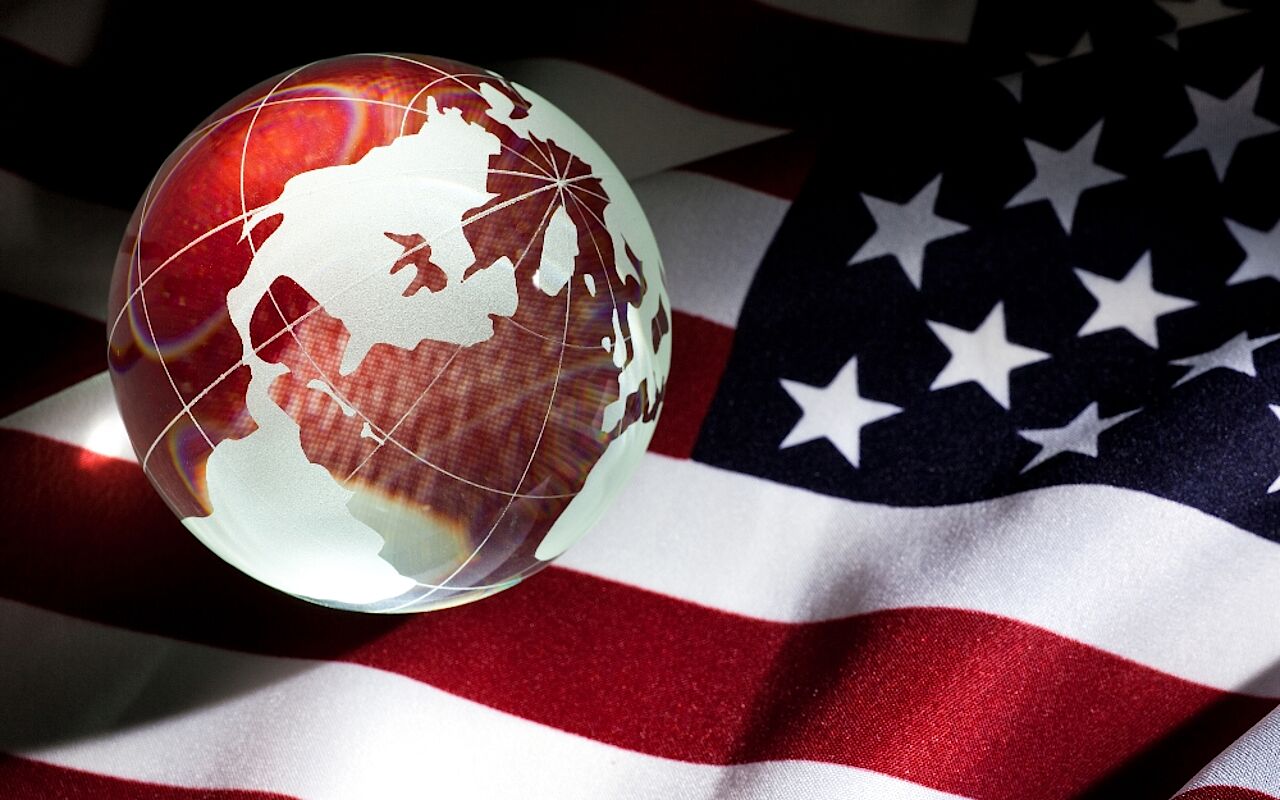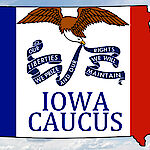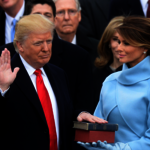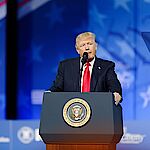The Populist Challenge to Liberal Internationalism: Foreign and Security Policy in the 2016 Elections
The Atlantic Academy’s Road to the Elections No. 8
Gerlinde Groitl, University Regensburg
About this Series
On November 8, nearly 200 Million registered voters are called upon to elect the next President of the United States of America, all 435 members of the House of Representatives as well as thirty-four of the one hundred senators. As in 2008, there is no incumbent, which is why both parties, the Democrats and the Republicans, will determine their candidates in primary elections. Thus, maybe fundamental changes but at least new accents in some policy fields should be expected.
With a monthly publication series, the Atlantic Academy will focus on this road to the elections in November. Political and economic scientists analyze policy fields as well as their roles in the (primary) elections and formulate expectations for a new presidency and Congress.
Foreign and security policy play a prominent role in the 2016 elections. According to a recent Pew poll, the economy, terrorism and foreign policy are the top three priorities for voters, while debates about globalization and free trade highlight the international dimension of economic concerns (cf. Pew Research Center 2016). The external threat environment, the dominant position of the U.S. in the international system and the president’s foreign policy prerogatives have regularly pushed foreign and security policy to the center stage in modern history. Since Hillary Clinton served as secretary of state in the first Obama administration from 2009 to 2013, it is also not surprising that Republican attacks on her political record focus heavily on foreign affairs.
What is significant, though, is the current erosion of the 70-year-old liberal internationalist consensus. Anger and anti-elite sentiments have produced a wave of populism and “insurgencies” in both parties in the 2016 primaries. While “establishment” candidate Hillary Clinton won the Democratic nomination, Bernie Sanders presented a formidable populist challenge on the left. On the Republican side, “anti-establishment” candidate Donald Trump beat 16 contenders with his blend of populist positions. The rise of Trump and Sanders is inextricably linked with domestic cleavages and grievances, among them gridlock in Washington, economic hardship, stagnant wages, doubts about social mobility and fears of demographic and cultural changes. Yet both contenders tied domestic issues to international affairs and discredited core tenets of U.S. foreign policy, such as the commitment to free trade or the need to remain engaged internationally and to uphold a rules-based liberal order. Though Hillary Clinton, a steadfast liberal internationalist, will most likely defeat Trump in the general election, it is a watershed to see a major party nominate an anti-globalist candidate. Should the U.S. turn inward, the liberal international order would lose its biggest champion and suffer dire consequences.
Obama’s Foreign Policy Record
Has Barack Obama been such a foreign policy failure to warrant calls for radical change? While his record is not perfect, he managed foreign affairs decently well. When Obama took office in January 2009, he inherited an unsustainable “war on terror”, two ill-managed and burdensome wars in Afghanistan and Iraq, a grave financial and economic crisis and a painfully divided nation. In short, the U.S. was over-stretched abroad while suffering from economic distress and political divisions at home. Obama’s key theme was to restore “balance”. His administration sought to redefine the fight against terrorism, get the U.S. out of Iraq, re-focus on Afghanistan to pave the way for eventual withdrawal, avoid new military entanglements, limit the U.S. footprint in the Middle East, enlist partners in international crisis management, and encourage allies to assume more responsibility. This was not a call for retreat, let alone isolationism. Yet it acknowledged that even a superpower had its limits. Instead of exhausting itself in an endless war against terrorism and large-scale counterinsurgency or nation building campaigns, the U.S. had to be conscious of future challenges. Faced with ongoing power shifts, the Obama administration wanted to give Asia and the Pacific region due attention and shape the emerging international environment. This included, for example, negotiating new trade deals to set rules and standards for the global economy.
It was a strategically sound assessment: After the neoconservative overreach of the George W. Bush administration, the U.S. needed a dose of realist retrenchment to preserve its pre-eminence and to be able to uphold the liberal international order in the future (cf. Rose 2015). Yet new challenges soon emerged, such as the Arab Spring’s violent aftershocks in Syria and beyond, the rise of a new generation of Islamist terrorism in the form of ISIL, Russia’s recent power politics and China’s assertiveness in the East and South China Sea. Though the Obama administration struggled to respond to these crises, it neither caused them nor disregarded any obvious solutions. The fact of the matter is that these issues defy easy answers.
Trump v. Clinton on Foreign and Security Policy
Easy answers, however, is exactly what Donald Trump offers and what many Americans – primarily white, elderly, non-college educated voters who feel left behind – seem to long for. Trump speaks to them. He says that they are paying the bill while others thrive at their expense, be it the rich, illegal immigrants or job-stealing foreign countries. He argues that the U.S. is picking unnecessary fights with great powers like China or Russia, while others free-ride on American blood and treasure. He claims that there are quick fixes to complex problems, such as building a wall to stop illegal immigration from Mexico, banning Muslims from entering the U.S. to counter the threat of terrorism or indiscriminately bombing “the bad guys” to defeat ISIL.
Trump promises to “Make America Great Again” and to put “America First”. While he borrowed the former slogan from Ronald Reagan, the latter evokes memories of Charles Lindbergh’s controversial “America First Committee”, which wanted to keep the U.S. out of World War II. Indeed, Trump favors a policy of (partial) isolationism and non-interference, implying that the U.S. can ignore international developments without suffering consequences. He rejects supporting democracy abroad and distances himself from the notion of American exceptionalism, arguing instead that the U.S. is in no position to lecture other countries. It follows that he does not bother much about principles, norms and values or a rules-based institutional order. Instead, Trump suggests a return to great power politics and is confident he can work out interest-based deals with Russia or China. Traditional alliances like NATO are derided as burdens without benefit. Trump also questions the merits of free trade. Charging that U.S. workers are ripped off by competitors’ unfair trade practices, he wants to re-negotiate or walk away from agreements like the North American Free Trade Agreement (NAFTA) and the Transpacific Partnership (TPP). He vows to impose a 45 percent tariff on imports from China and force companies to bring manufacturing jobs back to the U.S., ignoring trade benefits, structural changes in the US economy and the dangers of a global trade war. All of this adds up to an agenda for radical change (cf. Graham 2016; The Economist 2016).
While some of the above may sound dovish, Trump is not. Trump claims that U.S. military power has atrophied. He calls for major investments in the armed forces as well as for a policy of unpredictability to secure American primacy and restore respect for the U.S. In addition, he interprets terrorism as the existential, generational threat of our times, like communism or Nazism before. Liberals, he charges, are too politically correct to call the problem by its name and fight “radical Islam” successfully. He demands the indiscriminate use of force to defeat ISIL and other terrorist groups and even considers torture a legitimate tool. But chest-thumping rhetoric aside, Trump has not provided a plausible plan how to defeat ISIL. Instead, he tends to present challenges in the Middle East and beyond in grossly distorted terms (cf. Wright 2016).
Hillary Clinton offers a stark contrast, both in style and in substance. While Trump has little own understanding of foreign and security policy and almost no advisors of note, Clinton is one of the most experienced candidates ever to run for the presidency. While Trump’s foreign policy statements are erratic and often contradictory, Clinton has a coherent world view. Her foreign policy ideas rest on the belief that principled leadership and global engagement are vital for the well-being of the U.S. and for the world. She is convinced that the U.S. needs to support freedom and democracy, stand up to aggressors, uphold international order, punish rule-breaking, and enlist partners in multilateral diplomacy. Accepting Russia’s annexation of Crimea and its war in Eastern Ukraine or abandoning NATO are out of the question. Similarly, observers expect a tougher line towards Chinese expansionism in the South China Sea. After all, appeasing revisionist powers would invite more trouble down the road.
Clinton also seems comfortable with the full array of instruments in the foreign policy toolbox, including the use of military force. As secretary of state she pushed for military action in Libya in the wake of the local Arab Spring rebellion. She supported a more muscular approach to the civil war in Syria early on and calls for increased efforts to stop ISIL and end bloodshed in Syria. Though she is a hawk, her attitude is not to be conflated with the neoconservative ideology of forced regime change. Clinton regards the use of force in crisis situations as a potentially useful tool to maintain order, restore order or prevent a problem from getting worse. Quick and positive outcomes are not guaranteed, of course, as evidenced in Libya. Whether her willingness to confront challengers and crises decisively and to take military risks and costs fits the public’s mood remains to be seen (cf. Landler 2016). The fact that electoral opposition already forced her to backpedal on TPP and her free trade beliefs may foreshadow similar constraints in other fields in the future.
Future expectations
Trump has no (foreign) policy record, has flip-flopped on positions, does not let facts get into his way and regularly suggests policies that are outrageous, unrealistic, unconstitutional or all of the above. This makes him a dangerous wildcard. The one constant is his rejection of the tradition of liberal internationalism the U.S. has subscribed to since World War II. Whether supporters really believe in his proposals, are willing to take the risk anyway or simply go for anyone but Clinton, is hard to discern. Whatever the case, his appeal shows that popular support for globalist policies cannot be taken for granted, but must continuously be won anew.
Even though Trump has little chance to win in November, the themes he has raised are there to stay. Many Americans struggle at home and question whether their country’s global role serves them well. Many are tired of bearing international burdens. Many are frustrated by past blunders like the 2003 Iraq war. Many long for simple answers in an ever more complex world. They need compelling answers, not empty populist promises. Though her instincts guide Clinton towards a liberal internationalist agenda with a hawkish twist, she may not necessarily be able to follow through if elected. Chances are high that Clinton would be confronted with a reluctant public and die-hard partisan political opposition in Congress. Whether she can convince voters that retreating to the nation-state is not a viable option remains to be seen. If not, the 2016 elections will be a turning point for the U.S. and the world.
Bibliography
Graham, David A. (2016): Donald Trump’s Radical Foreign Policy, in: The Atlantic, July 29.
Landler, Mark (2016): How Hillary Clinton Became a Hawk, in: New York Times, April 21.
Pew Research Center (2016): 2016 Campaign: Strong Interest, Widespread Dissatisfaction, (July 7), http://www.people-press.org/2016/07/07/2016-campaign-strong-interest-widespread-dissatisfaction/.
Rose, Gideon (2015): What Obama Gets Right, in: Foreign Affairs 94:5, S. 2-12.
The Economist (2016): Fear trumps hope, May 7, S. 16-18.
Wright, Robin (2016): Trump’s Blunt-Force Foreign Policy, in: New Yorker, August 16.
About the Author
Dr. Gerlinde Groitl serves as Assistant Professor of International and Transatlantic Relations at the University of Regensburg. Her research focuses on U.S. foreign and security policy, transatlantic relations, intervention policy and global power shifts.







